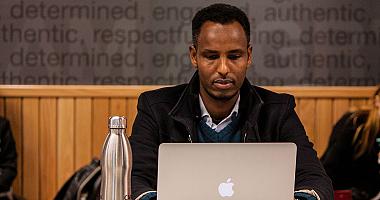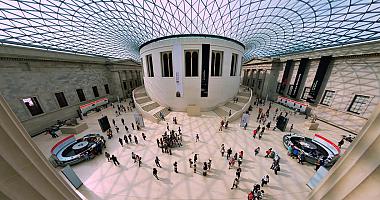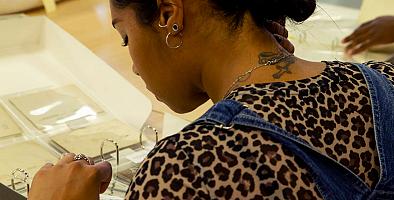MRes History
Content navigation menu
Why study MRes History at Goldsmiths
The MRes provides excellent preparation for study at MPhil/PhD level for students with a defined research topic, but is also a degree in its own right.
- The MRes History programme provides you with an ideal foundation for further historical research, on the basis of an individual research project that is much smaller in scale than an MPhil topic.
- You can gradually acquire the skills and techniques necessary for your particular field of research and then put this into practice in your research project.
- It's the ideal foundation for further scholarly research in history, cultural studies, and other related disciplines in the humanities.
Contact
If you have specific questions about the degree, contact Dr George Bodie.
Length
1 year full-time or 2 years part-time
Fees
Home - full-time: £10800
Home - part-time: £5400
International - full-time: £21000
School
Subject
What you'll study
The programme is primarily assessed by a dissertation on your chosen topic, but also incorporates two taught courses:
- Explorations and Debates in History investigates the ways historians have conceptualised and contested historical practice in the modern and early modern periods.
Or - Explorations and Debates in Queer History explores experiences, articulations and understandings of lesbian, gay, bisexual, trans and queer lives and desires across period and region, from medieval and early modern Europe to the present.
Or - Explorations and Debates in Black British History explores experiences, articulations and understandings of people of African descent and origin within a British context from the early modern period through to the present.
Plus
- Research Skills develops expertise in a variety of methodologies including the use of oral, visual, material and textual sources.
You'll be assessed by a portfolio of coursework essays and a 30,000-word dissertation. The dissertation may be followed by a viva voce.
Note about optional modules (if available): The above is indicative of the typical modules offered, but is not intended to be construed or relied on as a definitive list of what might be available in any given year. The module content and availability is subject to change.
Research skills
The Research Skills module aims to provide understanding and practical experience in the range and use of source material and appropriate research methods. Textual, visual, material and oral sources will be critically addressed through classroom discussion and field visits.
A further, and important, objective of this module is to prepare you for the research to be undertaken in order to complete the dissertation. The module consists of weekly seminars/field trips for all students.
Find out more
Initial enquiries should be directed to the programme contact, or to the member of staff whose research interests most closely match your own.
Careers
Students who complete the MRes History programme are successful in all types of careers that are available to humanities students, ranging from the media to the law to the public sector.
Students choose to study for this degree in London because of the wide range of research institutions and facilities that are available.
Some of those who complete the programme continue to pursue research as part of their career or take up jobs with institutions such as archives or museums that they became familiar with during their studies.
Ideally, students decide to take the MRes History as a preparation for further postgraduate studies at MPhil and PhD level.
Staff and their research
Our research is esteemed internationally. History staff publish books and articles with leading international publishers and journals, and their research has been externally funded by the AHRC, the British Academy, the Panacea Society and Wellcome Trust.
Fees and funding
Annual tuition fees
These are the PG fees for students starting their programme in the 2025/2026 academic year.
- Home - full-time: £10800
- Home - part-time: £5400
- International - full-time: £21000
If your fees are not listed here, please check our postgraduate fees guidance or contact the Fees Office, who can also advise you about how to pay your fees.
It’s not currently possible for international students to study part-time under a student visa. If you think you might be eligible to study part-time while being on another visa type, please contact our Admissions Team for more information.
If you are looking to pay your fees please see our guide to making a payment.
Funding opportunities
Explore the Goldsmiths scholarships finder to find out what funding you may be eligible for.
If you are a UK student you may be eligible for a postgraduate loan.
Meanwhile our Careers Service can also offer advice on finding work during your studies.
Paying your fees
Find out about paying your tuition fees.
Additional costs
In addition to your tuition fees, you'll be responsible for any additional costs associated with your course, such as buying stationery and paying for photocopying. You can find out more about what you need to budget for on our study costs page.
There may also be specific additional costs associated with your programme. This can include things like paying for field trips or specialist materials for your assignments. Please check the programme specification for more information.
Entry requirements
You should normally have, or expect to gain, an upper second class undergraduate degree in a humanities or social science subject, or be qualified by previous experience and able to demonstrate the ability to work at postgraduate level.
International qualifications
We accept a wide range of international qualifications. Find out more about the qualifications we accept from around the world.
If English isn’t your first language, you will need an IELTS score (or equivalent English language qualification) of 6.5 with a 6.5 in writing and no element lower than 6.0 to study this programme. If you need assistance with your English language, we offer a range of courses that can help prepare you for postgraduate study.
How to apply
You apply directly to Goldsmiths using our online application system.
To complete your application, you will need to have:
- Details of your academic qualifications
- The email address of your referee who we can request a reference from, or alternatively a copy of your academic reference
- Contact details of a second referee
- Copies of your educational transcripts or certificates
- A personal statement
- Details of your research proposal
You'll be able to save your progress at any point and return to your application by logging in using your username/email and password.
Before you apply for a research programme, we advise you to get in touch with the programme contact, listed above. It may also be possible to arrange an advisory meeting.
Before you start at Goldsmiths, the actual topic of your research has to be agreed with your proposed supervisor, who will be a member of staff active in your general field of research. The choice of topic may be influenced by the current research in our subject area or the requirements of an external funding body.
If you wish to study on a part-time basis, you should also indicate how many hours a week you intend to devote to research, whether this will be at evenings or weekends, and for how many hours each day.
Your research proposal
Along with your application and academic reference, you should also upload a research proposal at the point of application. This should be in the form of a 2-5 page statement of the proposed area of research and should include:
- Delineation of the research topic
- Why it has been chosen
- A section on methodology
- A brief list of major secondary sources
When to apply
We accept applications from October for students wanting to start the following September.
We encourage you to complete your application as early as possible, even if you haven't finished your current programme of study.
It's very common to be offered a place conditional on you achieving a particular qualification.
Selection process
Admission to many programmes is by interview, unless you live outside the UK. Occasionally we'll make candidates an offer of a place on the basis of their application and qualifications alone.
Further guidance
Read our guide to applying for a postgraduate degree at Goldsmiths.




